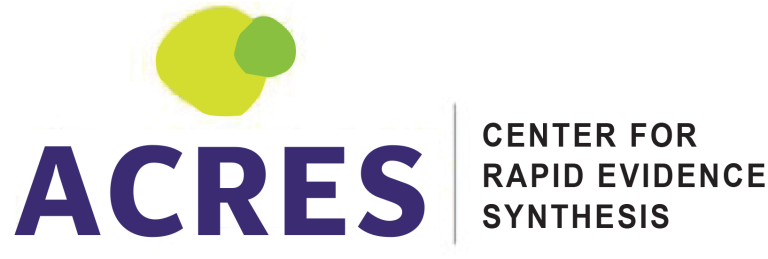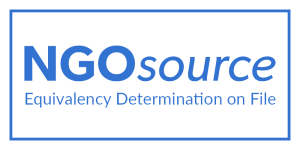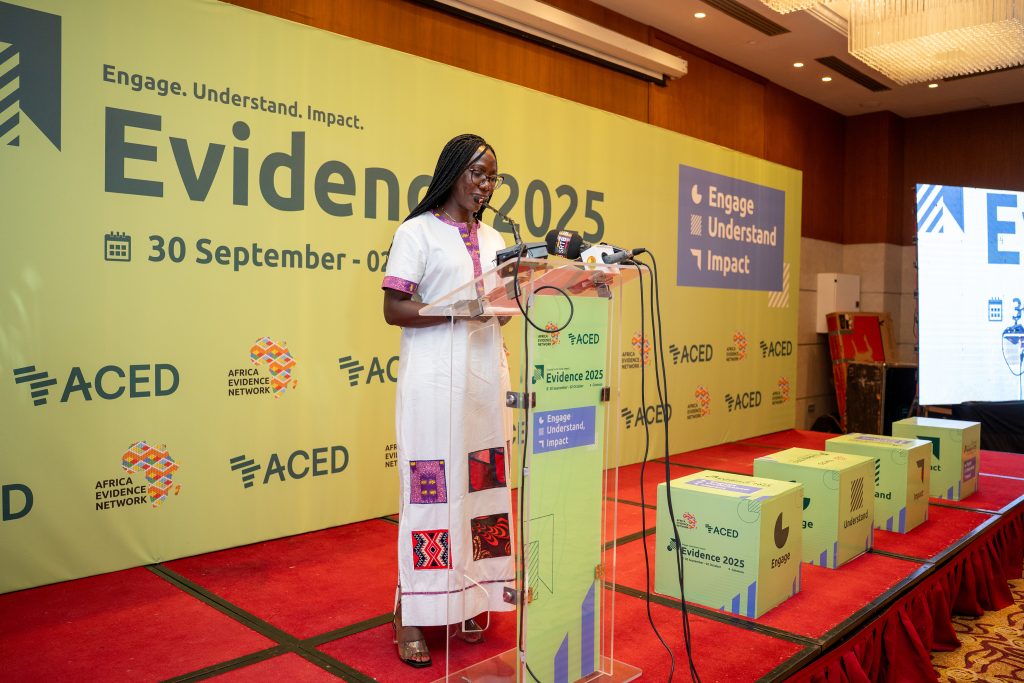
The city of Cotonou, Benin, hosted a landmark gathering of Africa’s evidence community from September 30 to October 2, 2025. The Evidence 2025 summit, convened by the Africa Evidence Network (AEN) and the African Center for Equitable Development (ACED) was a declaration of a new era for evidence-informed decision-making (EIDM) across the continent.
With over 250 delegates in person and another 100 joining online, the event buzzed with the energy of a community ready to translate ambition into action.
From the main stage to panel discussions and the innovation hub, The Center for Rapid Evidence Synthesis (ACRES) leaders and experts disseminated a unified message: the future of evidence in Africa is interconnected, technologically empowered, and human-centric.
BREAKING SILOS, EMPOWERING YOUTH
The summit’s tone was set by an opening address from Dr. Rhona Mijumbi, Executive Director of ACRES and Chairperson of the AEN. She challenged every leader in the room to move beyond rhetoric and focus on four transformative actions:
1. Listen Across Silos: Emphasizing the need for policymakers to genuinely hear researchers, for researchers to engage with communities, and for all generations to learn from each other, particularly by elevating the voices of youth.
2. Bridge Divides: She highlighted the gaps that persist—between evidence production and its use, between regional strategies and national implementation, and between data-rich and data-poor contexts.
3. Institutionalise Evidence: Dr. Mijumbi argued for moving evidence from scattered projects to the core of governance, embedding it in official processes, budgets, and organisational culture.
4. Accelerate Youth Leadership: “Africa is young, and its future depends on them,” she stated, framing youth leadership not as an option but as a key to sustainable change.
THE AI REVOLUTION: FROM APPREHENSION TO AFRICAN-LED INNOVATION
A major session chaired by Dr. Mijumbi focused on building a robust African data, evidence, and AI infrastructure to power evidence – informed development. Here, the conversation revealed a key continental shift.
Dr. Mijumbi outlined a new vision, noting that the caution which once characterised Africa’s approach to AI has been replaced by bold steps and strategic adoption over the past three years.
“Recent investments are amplifying the foundations for this,” she explained, describing an emerging infrastructure of “interconnected evidence producers, brokers, and users.”
This ecosystem, powered by AI, aims to give decision-makers “direct and live access to the best available evidence at the point of decision-making.”
“The infrastructure comprises AI powered enhancements to data collection, data and evidence curation, and evidence brokering. Powering this infrastructure is a radical change in standardising data and evidence to feed a variety of centralised and decentralised depositories which in return feed customised Large Language Models adopted to end users’ decision-making needs,” Dr. Mijumbi added.
Echoing this progress, Dr. Ismael Kawooya, Head of Office at ACRES, provided a ground-level perspective on this technological leap.
“Just three years ago, most of the digital EIDM tools were coming from the global north. This has now changed,” he stated.
“What AI has done has now democratised the process. We have now come to a point where we are developing the tools that we need.”
Dr. Kawooya estimated that Africa has advanced 30% in developing tailored digital tools, moving beyond reliance on global north solutions to address niche local needs and intricate policy processes.
However, he paired this optimism with caution, urging the community not to lose its nascent creativity.
“Let’s not lose the creativity that’s already starting to develop the tools and move quickly into other areas,” adding “we need to develop more tools and make the ones that we have developed much more efficient and working.”
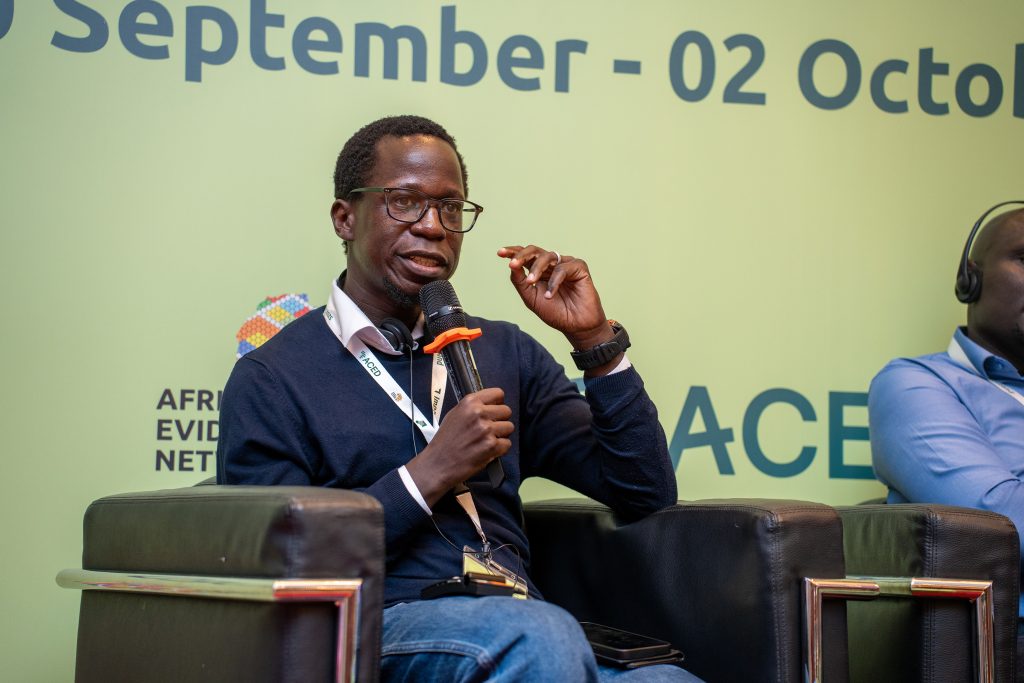
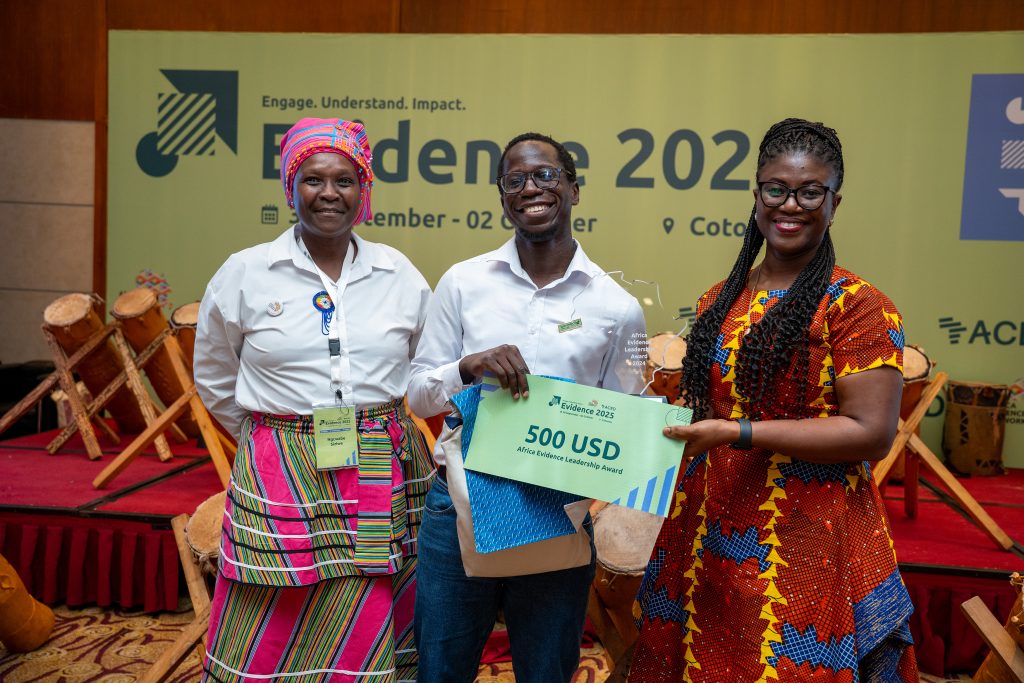
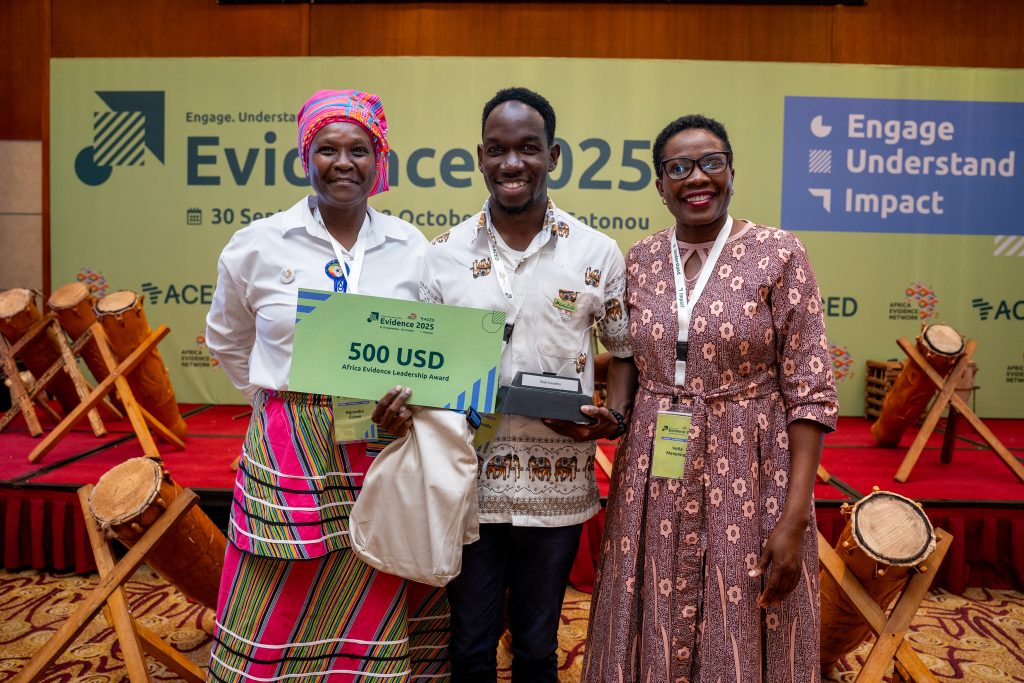
A NEW MODEL FOR BUILDING CAPACITY: THE E2P TRAINING PROGRAMME
While technology provides the tools, people remain the engine of change. This was the core of the presentation by Pastan Lusiba, Head of Capacity Building at ACRES, who introduced the Evidence to Policy (E2P) Training Programme to a global audience.
Lusiba diagnosed a gap in traditional approaches, noting that “existing training often falls short, missing the relational skills, real-world context, and ongoing support needed for lasting impact.”
In response, the E2P Programme was designed as a multi-level initiative to build a new generation of EIDM leaders across Malawi, Uganda, Kenya, Tanzania, and Ethiopia.
He detailed the programme’s unique, holistic approach, which deliberately builds three core competencies:
- Technical Competence: Mastery of evidence synthesis and application.
- Cultural Competence: The ability to navigate diverse policy landscapes and power dynamics.
- Collaborative Competence: The skills to build trust and co-create solutions between researchers and policymakers.
“A key lesson for ACRES,” Lusiba shared, “was that foundational mindsets must come before technical skills. Training alone is not enough—it must be a catalyst embedded in a larger ecosystem of support.”
SHOWCASING INNOVATION AND GLOBAL COLLABORATION
The ACRES presence extended beyond the main stages. At the Innovation Hub, Sherry Rita Ahirirwe and Joel Acana showcased digital tools developed by ACRES to make evidence synthesis faster, smarter, and more accessible for policymakers.
Furthermore, the summit served as a platform to highlight ACRES’ strategic global partnerships. The work demonstrated in Benin is a key part of ACRES’ role in the Evidence Synthesis Infrastructure Collaborative (ESIC), a global initiative to build a seamless, connected evidence synthesis ecosystem.
Meanwhile, at the ACRES exhibition stall, Faith Nakirijja provided delegates with an understanding of the work by ACRES, including the Rapid Evidence Service, which delivers timely, actionable insights to policymakers across the continent.
